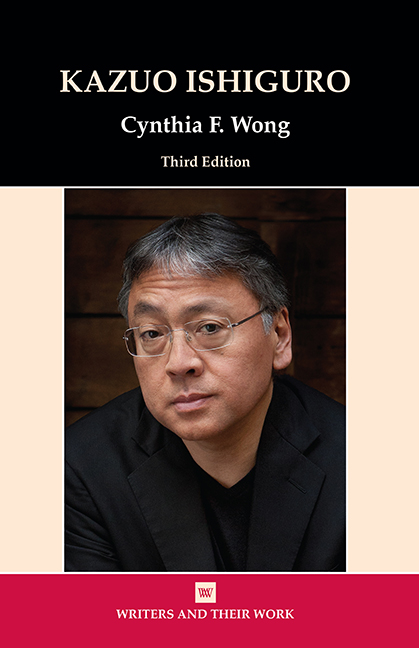Book contents
- Frontmatter
- Contents
- Acknowledgements
- Preface to the Third Edition
- Biographical Outline
- Abbreviations and References
- Introduction
- 1 Ishiguro as an International Writer
- 2 Reading the Novels
- 3 Narrative and Memory: A Pale View of Hills
- 4 Deflecting Truth in Memory: An Artist of the Floating World
- 5 Disclosure and ‘Unconcealment’: The Remains of the Day
- 6 Seizing Comprehension: The Unconsoled
- 7 Odd Failures of Guardianship in When We Were Orphans and Never Let Me Go
- 8 Parody and Performance in Nocturnes
- 9 Cloaked Memories in The Buried Giant
- Notes
- Select Bibliography
- Index
Preface to the Third Edition
- Frontmatter
- Contents
- Acknowledgements
- Preface to the Third Edition
- Biographical Outline
- Abbreviations and References
- Introduction
- 1 Ishiguro as an International Writer
- 2 Reading the Novels
- 3 Narrative and Memory: A Pale View of Hills
- 4 Deflecting Truth in Memory: An Artist of the Floating World
- 5 Disclosure and ‘Unconcealment’: The Remains of the Day
- 6 Seizing Comprehension: The Unconsoled
- 7 Odd Failures of Guardianship in When We Were Orphans and Never Let Me Go
- 8 Parody and Performance in Nocturnes
- 9 Cloaked Memories in The Buried Giant
- Notes
- Select Bibliography
- Index
Summary
On October 5, 2017, the Swedish Academy awarded the Nobel Prize in Literature to Kazuo Ishiguro for ‘his novels of great emotional force [that] have uncovered the abyss beneath our illusory connection with the world’. In his acceptance speech at Stockholm two months later, Ishiguro drew upon his view of world events to connect his literary achievements:
It's hard to put the whole world to rights, but let us at least think about how we can prepare our own small corner of it, this corner of ‘literature’, where we read, write, publish, recommend, denounce and give awards to books. If we are to play an important role in this uncertain future, if we are to get the best from the writers of today and tomorrow, I believe … we must widen our common literary world to include many more voices from beyond our comfort zones of the elite first world cultures [and] … wemust take care not to set too narrowly or conservatively our definitions of what constitutes good literature. (15–16)
Ishiguro's compassion and humility shine in this highly personal speech, unveiling his professional life and emotional sensibility in a way that many of his fictional characters could not. Ishiguro's audience – his book reviewers, media interviewers, academic critics, judges for awards, and most importantly, his general readers – would have fathomed his wisdom from the kinds of empathetic stories that he has written over the decades.
Ishiguro's appointment as a Nobel laureate is the occasion for the third expanded edition of this monograph, first published in 2000 by Northcote House when Ishiguro had written a mere handful of stories, four novels, and was just embarking on a promotional tour for his fifth novel, When We Were Orphans. In 2005, just as Never Let Me Go was in press, Brian Hulme asked me to update the first edition, for Ishiguro scholarship was growing slowly but steadily, and the author was venturing into making films, both adapted from his own books as well as original screenplays. I wrote for the second edition a combined chapter on When We Were Orphans and Never Let Me Go, one of the first critical assessments of each of these novels. By 2005, Brian Shaffer and I had published our respective single-author studies; we had each interviewed Ishiguro and valued our cherished acquaintanceship with the author.
- Type
- Chapter
- Information
- Kazuo Ishiguro , pp. ix - xiiPublisher: Liverpool University PressPrint publication year: 2019

